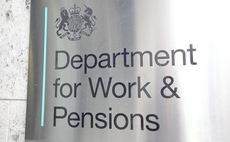PCS fires back at DWP over suggestion that survey is not representative of Universal Credit workforce
More than 90 per cent (90.4 per cent) of Universal Credit staff believe that the IT system they use is "less than adequate" to efficiently deliver Universal Credit, according to a survey by the Pub...
To continue reading this article...
Join Computing
- Unlimited access to real-time news, analysis and opinion from the technology industry
- Receive important and breaking news in our daily newsletter
- Be the first to hear about our events and awards programmes
- Join live member only interviews with IT leaders at the ‘IT Lounge’; your chance to ask your burning tech questions and have them answered
- Access to the Computing Delta hub providing market intelligence and research
- Receive our members-only newsletter with exclusive opinion pieces from senior IT Leaders






















